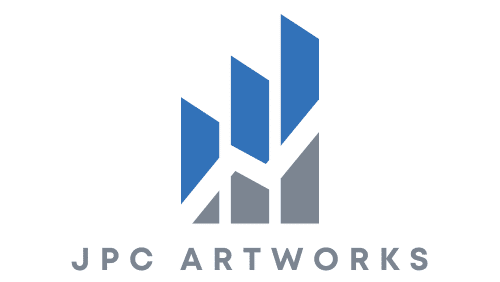What Innovative Building Techniques Can Speed Up Construction Times for UK Housing?

In the unpredictable landscape of UK housing, construction times are frequently a concern. Traditional methods often involve extensive planning, unexpected costs, and unexpected delays. However, there’s a transformation emerging in the industry that could significantly alter this status quo. Modern Methods of Construction (MMC) are gaining momentum, promising to revolutionize not only how homes are built, but also how quickly they can be ready for occupancy. Let’s delve into how these innovative techniques can save precious time, reduce costs, and bring new life to UK housing projects.
Traditional Construction Methods: The Challenges
Traditional construction methods have served us well for centuries. However, increasing pressures on housing demands, escalating costs, and environmental concerns are pushing the industry to find more efficient, less wasteful ways to build homes.
Topic to read : What Are the Strategies to Attract International Students to UK Private Rental Sector (PRS) Developments?
Traditional building methods involve extensive on-site construction, which can be subject to numerous variables such as weather conditions, manual labour availability, and supply chain issues. These factors can cause considerable time delays and cost overruns.
Moreover, these challenges are not limited to the construction phase alone. They also extend to the planning and design stages, where changes can often result in a spiral of adjustments and additional costs.
Also to discover : How to Balance Privacy and Openness in the Design of Gated Communities in the UK?
Modern Methods of Construction (MMC): The Revolution
Modern Methods of Construction, or MMC, is not a single method, but rather a broad term encompassing a range of innovative techniques that challenge traditional building norms. MMC includes a variety of practices, from off-site prefab construction to digital design and planning tools.
MMC techniques aim to streamline construction processes, reduce waste, and improve the quality of the finished housing projects. Off-site manufacturing is a hallmark of MMC, providing the ability to create housing components or entire homes in a controlled environment. This approach significantly reduces potential delays caused by weather or site conditions, leading to more predictable timelines and costs.
Digitally enhanced design and planning tools, such as Building Information Modelling (BIM), enable accurate, comprehensive planning and cost management. By enabling a more thorough understanding of the project before the building begins, these tools can help prevent costly changes and delays, ensuring a smoother construction process.
How MMC can Speed Up Housing Construction Times
MMC offers numerous ways to speed up the construction process. The pre-fabrication of components or entire houses in a factory setting is a notable example. This method allows construction to continue unabated by adverse weather conditions or local site challenges, ensuring a more predictable and faster build time.
Moreover, the precision offered by factory settings can also lead to better quality control and less need for rework, further saving time. Once the components are ready, they can be transported to the site and assembled, drastically reducing the on-site construction time.
Additionally, digital planning tools can speed up the design and planning stages, allowing for better optimization of resources and time. These tools also facilitate better communication and collaboration among stakeholders, making the construction process more efficient.
Reducing Costs With MMC
Beyond the time savings, MMC can also significantly reduce construction costs. By minimizing waste, optimizing materials, and improving efficiency, total project costs can be considerably less than with traditional construction methods.
Off-site manufacturing can yield significant savings in materials as it allows for bulk purchasing and more efficient use of resources. Moreover, the reduced need for on-site labour and the decreased risk of project delays or changes can lead to further cost savings.
With a more predictable construction timeline and fewer surprises, budgeting and financing of housing projects can also be more manageable.
Adapting to MMC: The Future of UK Housing Construction
While the shift from traditional methods to MMC is not without its challenges, the potential benefits are compelling. The ability to build homes faster, more efficiently, and at a lower cost represents a significant opportunity to address the housing needs in the UK.
However, it will require a mindset change from all stakeholders, including builders, designers, regulators, financiers, and homebuyers. Training and skill development will also be essential to equip the workforce with the necessary competencies to implement MMC effectively.
As we forge into the future, the UK construction industry stands at the precipice of change. Embracing MMC and capitalising on its potential could lead to a revolution in the way we build our homes – a prospect that, given the challenges faced by the traditional methods, is not just welcome, but essential.
The Case Study: Implementing MMC in UK Social Housing Projects
The adoption of MMC isn’t just a theoretical concept; there are already several successful implementations of these innovative construction methods in the UK housing sector. A prime example is the use of MMC in social housing projects.
Social housing associations have been some of the early adopters of these methods, particularly off-site construction, to deliver high-quality homes quickly and cost-effectively. Using pre-manufactured components, these associations can build houses at a faster pace, allowing them to meet the increasing demand for affordable homes more efficiently.
One case study involves a housing association that used timber frame construction methods, a type of off-site construction, to build a housing project. The components were fabricated in a factory and then transported to the site for assembly. This approach led to a reduction in construction time by 30%, allowing the association to complete the project ahead of schedule and move tenants in sooner than expected.
The use of MMC also resulted in substantial cost savings for the association. The efficient use of materials in the factory setting reduced waste, contributing to a significant cost recovery. Moreover, the controlled factory environment allowed for better quality control, reducing the need for costly rework.
Action Plan for Local Authorities and Housing Associations
For local authorities and housing associations in the UK, adopting MMC can be a game-changer. The benefits of these modern methods go beyond just cost and time savings; they also promote sustainability and energy efficiency. For instance, using MMC can simplify the integration of green technologies like heat pumps into housing designs, contributing to long-term energy cost savings and a reduced carbon footprint.
However, the transition to MMC requires a comprehensive action plan. The first step is to foster a deeper understanding and acceptance of these methods across all stakeholders. This can be achieved through education and engagement, highlighting the extensive benefits of MMC.
Next, there is a need for investment in training and skill development for the construction workforce. Successfully implementing MMC requires a different set of skills compared to traditional construction methods. For instance, workers need to understand how to assemble pre-manufactured components efficiently and safely.
Lastly, local authorities can play a crucial role in supporting the adoption of MMC by creating favourable policies and regulations. This could include incentives for construction companies that adopt MMC or streamlined approval processes for MMC projects.
Concluding Thoughts
Undoubtedly, the movement towards Modern Methods of Construction (MMC) is transforming the UK housing sector. By offering a solution to the time and cost challenges posed by traditional construction methods, MMC holds immense promise for the future.
However, it’s critical to remember that the transition to these new methods requires a shift in mindset and a commitment to learning and adaptation. It’s a journey that involves not just the construction industry, but also housing associations, local authorities, financiers, and homebuyers.
With the combination of innovative technology, strategic planning, and collaborative effort, MMC can significantly expedite the construction times for UK housing. This could mean more high-quality, affordable homes delivered faster than ever before – an exciting prospect for the future of UK housing.
